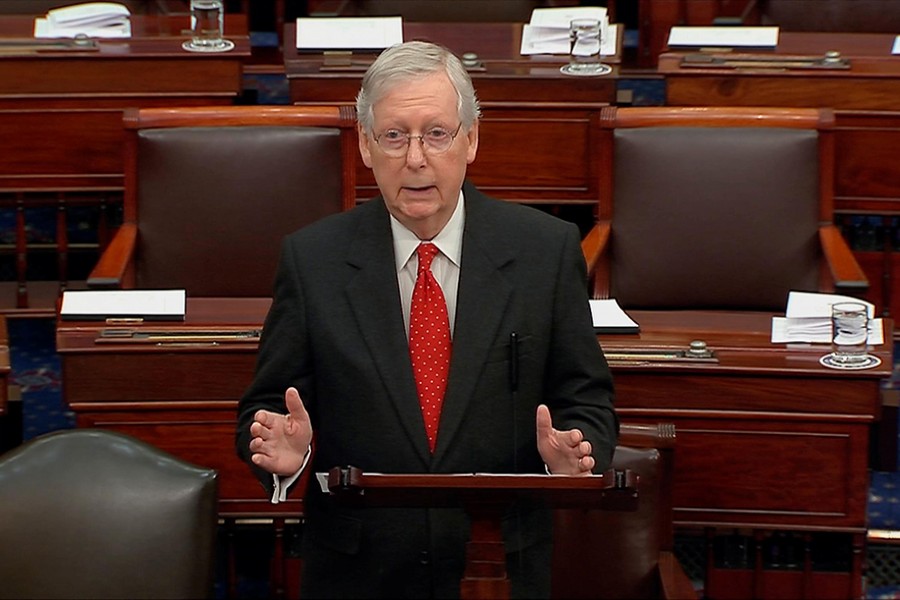The US Senate has rejected repeated Democratic attempts to secure new evidence in President Donald Trump's impeachment as his trial began.
Senate Majority leader Mitch McConnell meanwhile backed off on a plan to fast-track the hearings after coming under pressure from fellow Republicans.
Democrats said this would have been no less than a cover-up, according to a BBC report Wednesday.
Mr Trump is charged with abuse of power and obstructing the congressional inquiry. He denies wrongdoing.
At the World Economic Forum in Davos, Switzerland, on Tuesday, Mr Trump dismissed the accusations against him as "just a hoax".
Senators have taken oaths to act as impartial jurors, hearing arguments for six hours a day, six days a week in a trial presided over by the US Chief Justice, John Roberts.
Trial proceedings on the first day ran late into the night.
It is only the third time in US history that a president is facing an impeachment trial and it is unclear how long it will last.
Mr Trump was impeached last month by the Democratic-led House of Representatives.
But the Senate, which is controlled by his fellow Republicans, is not expected to convict the president and remove him from office.
How were Democrats blocked?
By party-line votes of 53-47, the Senate rejected three Democratic bids on Tuesday to obtain documents and evidence in the impeachment trial.
Senators blocked a motion from Democratic leader Chuck Schumer to subpoena White House files related to Mr Trump's dealings with Ukraine.
They also rejected follow-up motions demanding a subpoena of records and documents from the state department and White House budget office.
In his opening statement, Adam Schiff, the House Democrat leading the impeachment case, said most Americans "do not believe there will be a fair trial".
"They don't believe the Senate will be impartial," he added. "They believe the result is pre-cooked."
The president's legal team had earlier demanded he be immediately acquitted, calling the trial "a dangerous perversion of the constitution".
How did Mitch McConnell come under pressure?
Backed by the president's lawyers, Mr McConnell had initially planned to condense the opening arguments from three days to two.
But after a meeting with senators, including some Republicans, Mr McConnell agreed on Tuesday to three days for opening arguments.
The senators had expressed concern about how middle-of-the-night sessions would look to US voters.
White House Counsel Pat Cipollone, the president's lead lawyer, said: "It's a fair process. There is absolutely no case."
Several more days of procedural tangles are expected.
Democrats want current and former Trump administration officials such as ex-National Security Adviser John Bolton to testify.
But Republicans are postponing debate over witnesses and documents until later in the trial.
What are the charges?
First, the president is accused of seeking help from Ukraine's government to help himself get re-elected in November.
It is claimed that, during a call with Ukrainian President Volodymyr Zelensky, he held back military aid as he sought an anti-corruption investigation into Democratic White House candidate Joe Biden, whose son, Hunter, held a board position with a Ukrainian energy firm, Burisma.
The second allegation is that, by refusing to allow White House staff to testify at the impeachment hearings last year, Mr Trump obstructed Congress.
The Senate is hearing the case as the Democratic-led House voted to impeach Mr Trump on 18 December.


